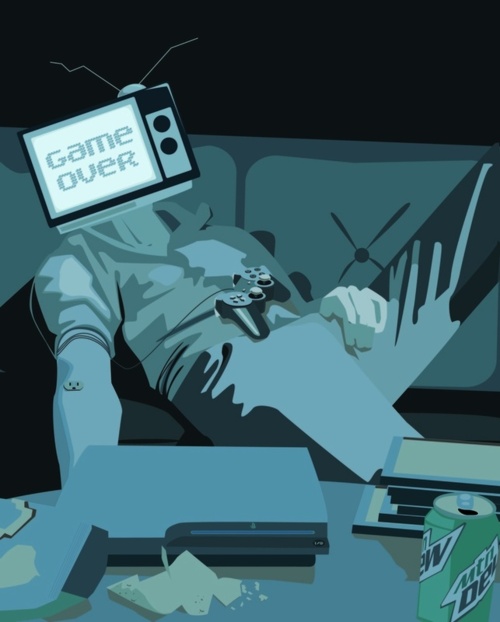Gambling Addicts' Brains Don't Have The Same Opioid Systems As Others |
|---|

Description |
|---|
During gambling games, people often misperceive their chances of winning due to a number of errors of thinking called cognitive distortions. UK report some gambling involvement in the past year* and around 50% play games other than the National Lottery. For a small proportion of players (around 1-5%), their gambling becomes excessive, resulting in features seen in addiction. Problem gambling is associated with both debt and family difficulties as well as other mental health problems like depression. These brain irregularities have often been seen in cocaine and heroin abusers, as well as alcoholics. Now, a new study suggests that the opioid systems in the brains of pathological gamblers may be different, affecting their control, motivation, emotion, and responses to pain and stress. Because of naltrexone’s actions in the brain areas that process pleasure and urges, the study’s lead investigator, Suck Won Kim, M.D., had theorized that this drug would be useful for treating pathological gambling. Hans Breiter, M.D., co-director of the Motivation and Emotion Neuroscience Center at MGH, used the neuroimaging process called functional magnetic resonance imaging to monitor the brain activity of volunteers participating in a game of chance. Pathological Gambling and Related Disorders at Harvard Medical School’s Division on Addictions. A landmark 1997 Harvard study, funded by the NCRG, estimated that approximately 1 percent of the adult population can be classified as pathological gamblers. This estimate is now widely accepted as the most reliable statistic about the prevalence of gambling disorders. Schull holds off on offering specific regulatory remedies concerning the way games should be structured. Mexico, the industry not only enslaves individuals or fosters cartel wars over gambling territories and profits. Schull is right, and her research does sound persuasive, it seems there could be an effective intervention. Since the phenomenon of gambling is new to us, there is not much research on the subject of addiction. We are just wakening up to the disaster that is being prepared. Once a person is identified as a compulsive gambler based on his/her previous history, he or she should be sheltered from excessive losses. They should be reimbursed for their losses, excluding flat charges for taking up a spot at the slot machines. Gambling is readily accessible to those older than 18, from scratch-off and lottery tickets to casinos within driving distance in most states. Places like Las Vegas and Atlantic City are alluring to some because of their inherent novelty and glamour, and to others because of the competitive aspect of some card games. You may notice overdue bills in the mail or overhear calls from bill collectors. This may begin as an infrequent occurrence that then become chronic. Discrepancies in your loved ones’ stories will become evident the longer their addiction continues. Behavioral Therapy (CBT) has been used successfully to gradually rewire and retrain the brain to overcome emotional and cognitive states that drive the impulsive behavioral patterns that are associated with addiction. BBC has updated its cookie policy. We use cookies to ensure that we give you the best experience on our website. This includes cookies from third party social media websites if you visit a page which contains embedded content from social media. Gambling becomes a problem when behavior interferes with finances, relationships and the workplace. Some problem gamblers also find they have a problem with alcohol or drugs. Many problem gamblers report that either one or both parents had a drinking and or gambling problem. Family patterns and upbringing are significant aspects in the propensity to develop dependence. The sensation experienced is similar, although no substance is ingested. At the same time, the ability to resist drops. The craving grows in intensity and frequency. Some problem gamblers may only go on periodic gambling binges. The amount of money lost or won does not determine when gambling becomes a problem. Age of exposure is also an influential aspect. Studies inform that adults who seek treatment for problem gambling start gambling at an early age. A number of adolescents reported an obsession with everything associated to gambling prior to developing problems.
Similar to Research on gambling addiction |
|---|
- Gambling addiction brain function
- 1 3 html addiction gambling online
- Gambling addiction help in alabama
- Gambling addiction help delaware
- Gambling addiction screening tools
Schull is right, and her research does sound persuasive, it seems there could be an effective intervention. Some people even win a year’s salary in one game.
They should be reimbursed for their losses, excluding flat charges for taking up a spot at the slot machines. Two months after the funeral, Virginia's best friend arranged a trip to Las Vegas to cheer her up. Virginia quickly took to the slot machines and found herself feeling better.
Medications for gambling addiction treatment are usually some form of anti-depressant. SSRR’s (Serotonin Reuptake Inhibitors) have proven to be effective for mood swings and pathological gamblers.
It starts with the individual, what sort of addiction he or she has, and how severe the dependence is. Some drugs may require only outpatient services, where you can treat yourself at home. Others require an inpatient stay at a residential treatment facility.
The current body of research evidence is stronger for psychotherapeutic approaches than for pharmacological approaches. Be familiarised with the overall experience at NAMS, from the point of registration to making payment.